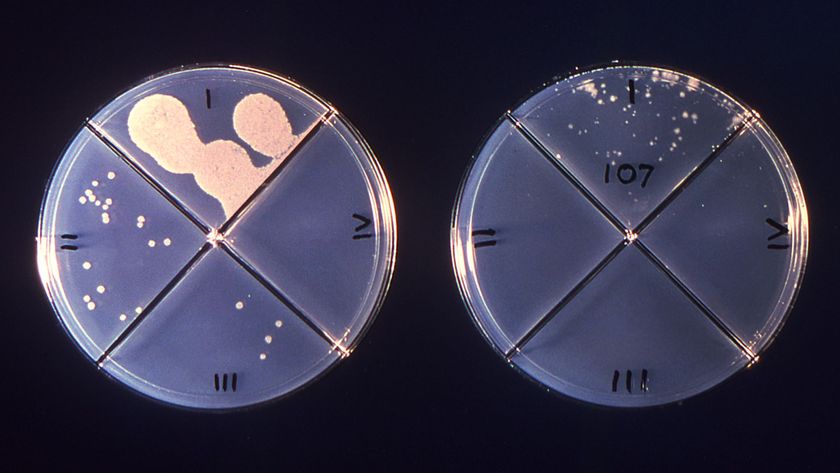Sensitive Blood Test Could Predict Heart Disease
Physicians could predict heart disease in seemingly healthy and symptomless middle-aged adults by using a more sensitive version of a blood test now used to confirm heart failure, according to a new study.
The test measures blood levels of a protein called cardiac troponin T (cTnT). People who have the protein at a high-enough level for the test to detect have a high risk of dying from heart problems, said study researcher Dr. James de Lemos, an associate professor of internal medicine at University of Texas Southwestern Medical Center.
The new test could detect lower levels of cTnT than the old test, and so it could predict heart problems in more people, the researchers said.
"It can detect people who have enlargement or weakening of the heart muscle , which are precursors that lead to the development of chronic heart failure and death," de Lemos told MyHealthNewsDaily.
Researchers don't yet know how to reduce cTnT levels, but they do know people aren't born with high levels of the protein , de Lemos said. Levels of cTnT rise after the heart muscle is damaged, which could be the result of hypertension, diabetes or kidney disease, he said.
"Better and more aggressive treatment of hypertension and diabetes may reduce cTnT, but we need to study this more to know," de Lemos said.
The study will be published in the Dec. 8 issue of the Journal of the American Medical Association.
Sign up for the Live Science daily newsletter now
Get the world’s most fascinating discoveries delivered straight to your inbox.
Battle of the blood tests
Starting in 2000, researchers conducted the standard cTnT test and the new, more-sensitive test on blood samples from 3,500 people ages 30 to 65 living in Dallas. They also conducted computed tomography (CT) and magnetic resonance imaging (MRI) scans of the participants, and then tracked their causes and times of death until 2007.
The sensitive blood test detected cTnT in 25 percent of the 3,500 people, whereas the normal test detected cTnT in only 0.7 percent of the people, according to the study.
The people who had detectable levels of cTnT in 2000 were nearly seven times more likely to die within six years than people who did not have detectable levels of the protein, de Lemos said.
Taking the test beyond the lab
Other blood tests are aimed at predicting heart disease, such as the one that measures levels of C-reactive protein (CRP), said Dr. Ralph Sacco, American Heart Association president, who was not involved in the study.
But if this new test can be perfected for clinical practice, it could predict heart problems of more people who have detectable levels of the cTnT protein, he said.
The finding "helps us move toward better systems of predicting cardiovascular mortality," Sacco told MyHealthNewsDaily.
The test next needs approval for heart attack diagnosis in emergency rooms. Then, with further study, it could be approved to diagnose heart disease in physician's offices, de Lemos said.
Research also needs to be done to identify treatments that reduce the heart disease risk associated with detectable levels of cTnT, he added.
Pass it on: Just because you seem healthy doesn't mean your heart is. If you are at intermediate or high risk for heart disease, make sure you see your doctor regularly to monitor your risk factors.
- 10 Dos and Don'ts to Reduce Your Risk of Cancer
- 7 Cancers You Can Ward Off With Exercise
- Blood Tests Point to First Traces of Several Cancers
Follow MyHealthNewsDaily staff writer Amanda Chan on Twitter @AmandaLChan.












